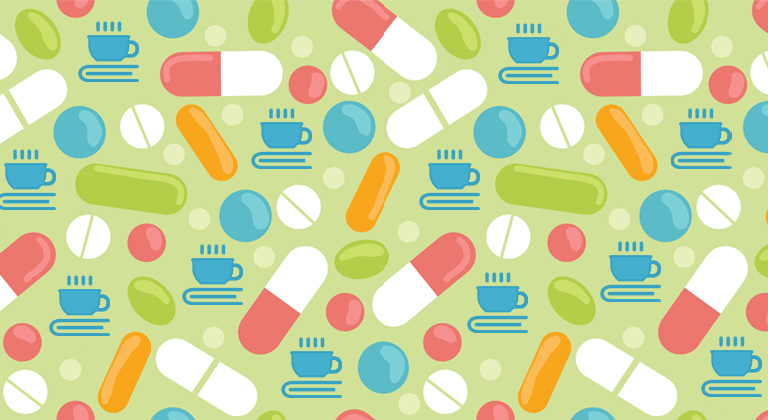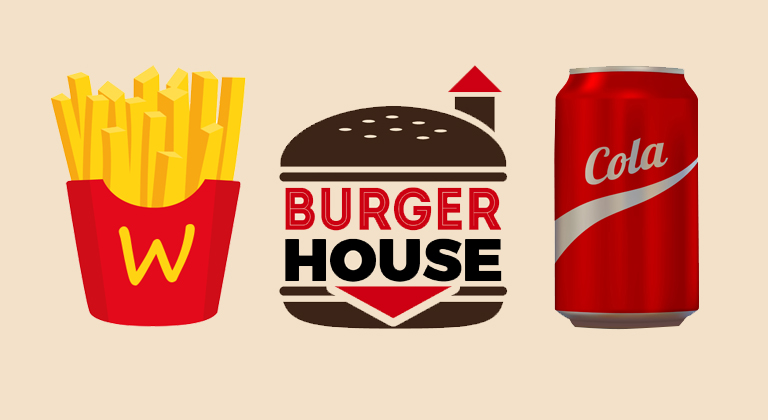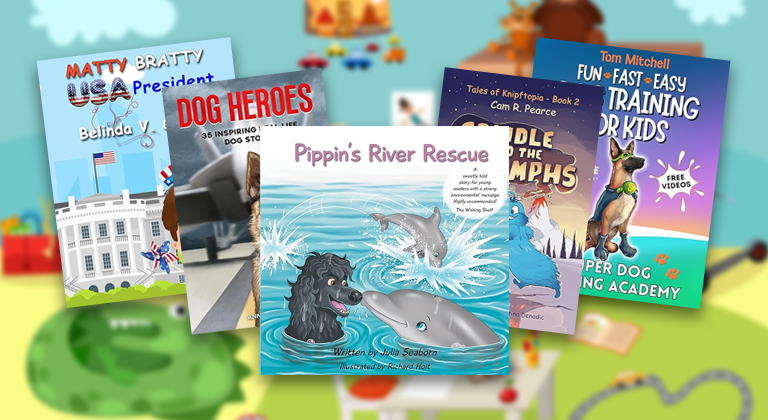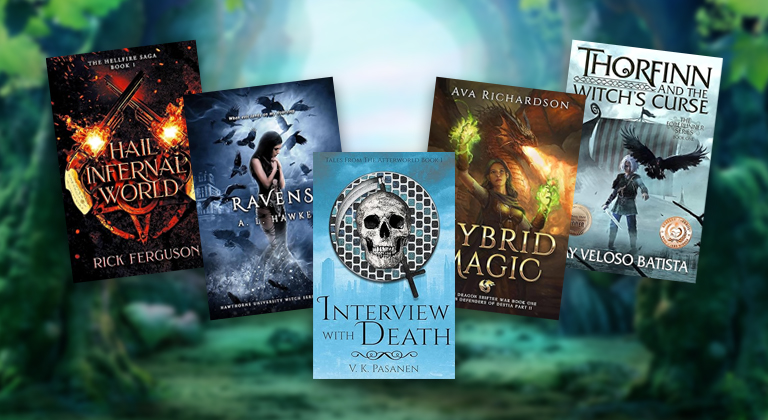Five mental supplements for writers
Not everyone can maintain consistent mental focus throughout the day, and so there is no shame in looking for something that might help keep you on track. Especially when your livelihood depends on being able to concentrate! Performance enhancers aren’t just for professional athletes anymore, and the ones we’re talking about are used to improve your brain, not your body. But there are lots of options out there, which is why Ginger has put together a short list of the (legal) mental supplements that are of specific benefit to authors. Some of these you may have already tried, but you might find something new here as well. So the next time you’re feeling like you need a bit of a mental pick me up, perhaps one of these will bring you back on the road to productivity.
When people talk about “performance-enhancing” supplements, they’re normally talking about drugs or substances that professional athletes use to enhance their prowess – like steroids for bodybuilders, or how so many Tour de France riders were accused of “doping.”
However, writing requires a performance, too – and while we’re definitely not advocating taking illegal drugs to enhance your writing (we’re looking at you, Hunter S. Thompson) there are a number of mental supplements that writers and creative people have used for years to enhance their ability to get words onto the page and perhaps it’s valuable to discuss what they are and whether or not you might want to consider experimenting with any of them.
Caffeine
For those of you eager to read about mescaline, peyote, or dropping acid before you sit in front of the keyboard, I’m sorry to disappoint you. The first “drug” on my list is one you probably take already – America’s most popular chemical dependence: Coffee.
Caffeine is the ‘active ingredient’ in coffee (plus tea, and many energy drinks) and I know it’s an essential part of my writing process. A strong, black cup of coffee in the morning is how I start each and every day, and I supplement that with a second (or fourth) cup after lunch to help bolster me through the rest of the day.
The fact that caffeine gives you a perk of energy and concentration isn’t news to most people – but there’s a science behind it! Caffeine actually blocks reception of an organic compound called adenosine in the body, which in turn gives a sense of stimulation and focus (hence letting you write more, better, and faster.) Therefore, it’s a legal and socially-acceptable tool to help kick your brain into overdrive.
The secret to using caffeine effectively, however, is to be strategic about it. Many of us are used to drinking coffee out of habit. If you actually plan out your caffeine intake to match your working day, you’ll be better able to ride the highs and lows – making you able to make the most of them.
Just be aware that caffeine isn’t always your friend, though. Because sleep is so important to creative people, it’s important not to have caffeine too late in the day – and never use it to try and ‘cram’ work in when you’re too tired or uninspired. Pulling a caffeine-fueled bender might have worked for you in college, but it’s not recommended for adults!
B Vitamins
One of the game-changing mental supplements for my writing lifestyle is located at the checkout of most convenience stores – those little bottles of 5-Hour Energy. Those tiny shots are packed full of B vitamins like B6, B12, and B9. Not only are these vitamins many of us are deficient in, they’re also incredibly beneficial for the brain and provide a massive boost of energy and focus without the crash of caffeine.
Now, I don’t recommend guzzling 5-Hour Energy all the time, but researching products that provide B vitamins could help you find a supplement that suits your lifestyle. I buy a product called “Liquid Einstein” that I drink every morning and it perks up my day and helps me focus right from the crack of dawn. There are countless other products packed with B Vitamins, too – including pulls you can get from any health food store.
Foods like leafy greens are also packed with B Vitamins, and in addition to helping give you energy and focus, they’re also really good for overall brain health – including reducing the risk of Alzheimer’s disease.
L-theanine
L-theanine is a naturally occurring amino acid that is essential for brain health, and many of us don’t get enough – a fact proven in a 2010 study that demonstrated higher mental performance after supplementing with L-theanine.
It’s a supplement readily available from most health food stores, but that’s certainly not the only way to take it. In fact, one of the most powerful combos available for writers is a humble cup of green tea – which contains not just plenty of L-theanine but also the other supplement we rave about: Caffeine! And given how much writers love a nice cup of tea, this seems like a winning combination.
MCT Oil
If you’re a fan of the Joe Rogan podcast – or anything like it – you’ve probably heard of MCT oil. This is a mental supplement that many people add to their coffee to make it “bulletproof” and there’s science backing up the claim that MCT oil can be used to mitigate neurological conditions like ADHD and autism.
Again, MCT oil is readily available from most health food stores – and if you’re not yet ready to buy direct from infomercial-style online stores popularized by those self-same celebrities like Joe Rogan, you’ll be happy to hear that even regular, old coconut oil consists of 50% MCT oil and you can add more of it to your diet simply by using coconut oil instead of other types of cooking oil.
Melatonin
The final supplement on this list doesn’t offer direct benefits, so much as it helps you in other aspects of your life. Melatonin is a naturally occurring chemical released by your body as you approach bed time, and for people struggling to fall and stay asleep, supplementing with store-bought melatonin can be a great way to improve your sleep habits.
Now that’s where the benefits kick in! Sleep is such an essential part of living a healthy and productive life, and it’s especially important for those of us in the creative fields. At night, our brain is cleansed of the toxins produced during our mentally-taxing workday, so not getting enough sleep can seriously impact your mental effectiveness for days afterward. Therefore getting on top of your sleep schedule by using a supplement like melatonin can do amazing things for your mental focus and energy when you wake up.
As a naturally occurring chemical, melatonin carries few risks or side effects – however, it’s worth pointing out that you shouldn’t rely too heavily on it to help you fall asleep, as that might make it extremely difficult for you if you ever go off the supplement. I recommend using melatonin to develop good sleep patterns, and then slowly wean yourself off it as you maintain them.
Your brain is a muscle, too!
While none of these mental supplements might be especially sexy or scandalous (maybe we should do a blog post on the less-than-legal supplements many famous writers relied upon!) they can make a significant impact on the quality and quantity of your writing – not to mention the quality of your day!
I definitely recommend doing further research and experimenting yourself – and if there’s a supplement you recommend that I haven’t included on this list, make sure to let us know in the comments section below!












Instead of consuming supplements, avoid processed food and cereals. They will give you some deep brain fog that no supplement can override.
Ever since I started a Paleo-type diet, it’s as if I have ten coffees every morning (I only drink coffee once a week).